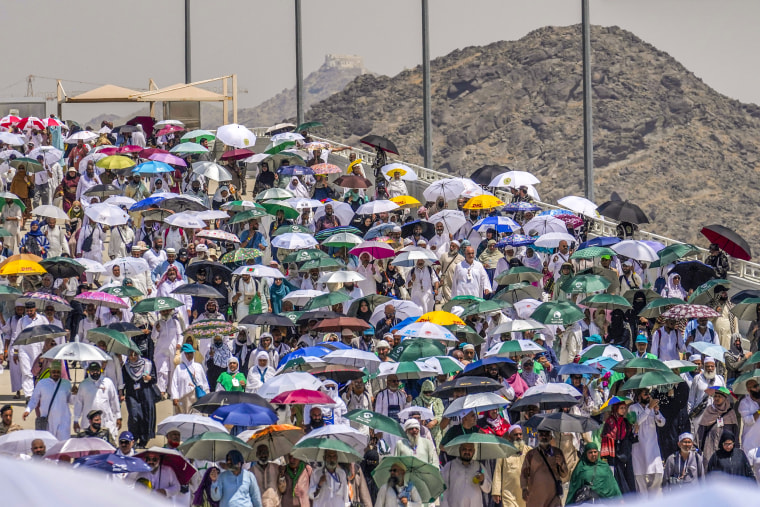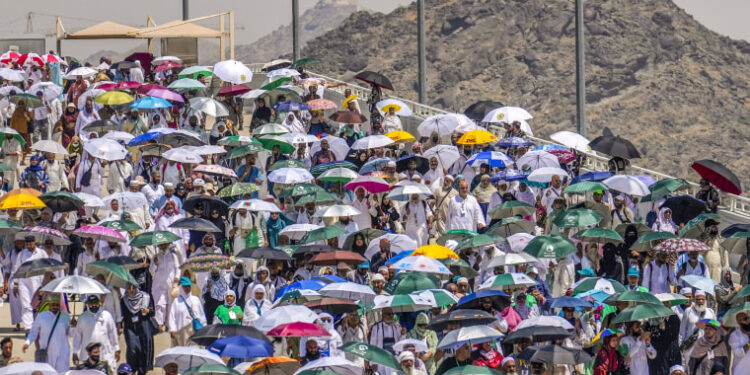A husband and wife from Bowie, Maryland, had always dreamed of making the Hajj to Mecca.
Their family says they were among more than 1,000 people who died on the annual five-day pilgrimage to Saudi Arabia as temperatures soared over 120 degrees.
Alhaji Alieu Dausy and Haja Isatu Wurie were the victims.
Their daughter Saida Wurie sat with her two brothers on Sunday and told News4 about her last communication with their parents.
“She let me know that they had been walking for over two hours to get to Mount Arafat, which is part of the Hajj process,” she said.
They faced another dozen or so miles on the route to Mecca, in punishing heat.
“They weren’t the best of conditions. Transportation should have been provided. They paid for transportation to be provided, however, there was none,” Wurie said.
Her parents would not have turned back.

“Despite everything, they still walked and pushed to what they wanted to do because of their religion,” their daughter said.
Dausy and Wurie both worked on Prince George’s County Executive Angela Alsobrooks’ campaign for U.S. Senate.
Alsobrooks conveyed her condolences to the family and said Wurie’s work made “transformational impacts that were felt both locally and globally.”
“Our thoughts and deepest condolences are with their families during this difficult time. Their loss is profound, and they will be deeply missed,” she said in a statement.
Wurie served on the county’s African diaspora advisory board.
“During the COVID workforce, she was the first one there. When it came to food drives, she was also the first one there,” said Chukwunonso Vincent Iweanoge, of the advisory board.
Wurie also traveled to the couple’s birthplace, Sierra Leone, to help respond to an Ebola outbreak.
Saudi officials said Sunday that more than 1,300 people died during the Hajj, which Muslims are expected to make at least once in their lifetimes. Associated Press journalists saw pilgrims faint, collapse and vomit in the heat. Pilgrims who died came from countries including Egypt, Indonesia, India, Jordan, Tunisia, Morocco, Algeria and Malaysia, the AP reported.
Dausy and Wurie’s children said they will carry on their parents’ legacy.
“We want to continue doing what our parents did, giving our time to charity,” their daughter said.
Hajj is an annual religious pilgrimage to the holy city of Mecca.
The siblings said they plan to travel to Saudi Arabia to learn where their parents were buried. For now, they’re mourning their parents’ death as they made the journey they had always dreamed of.
“They had been looking forward to it all their lives,” Wurie said.







